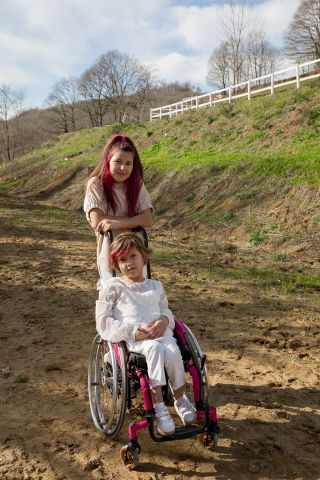Divorce
Divorce and Special Needs Children
Special considerations to provide a safe and secure family restructuring.
Posted February 28, 2023 Reviewed by Abigail Fagan
Twenty percent of American homes have a child with a chronic illness, disability, or special health care needs.
When you have a child with special needs, your marriage is much more likely to be stressed. This is demonstrated by the numbers:
Surveys show that the rate of divorce in families with a child with disabilities may be as high as 87%.
The divorce rate in families with a child with autism is about 80%.
It isn’t only the marriage that is over-stressed.
The suffering affects the entire family, including the siblings. Tension, arguing, and silent stress are like black clouds hanging over every family member. This is even more true for families with a special needs child. As you and your partner work through the divorce process, consider additional support, such as therapy, for your children as they adapt to the new family structure.
Parenting plan considerations
All parents consider their children’s needs as they develop a parenting plan during the divorce process. However, there are additional considerations when your child has special needs. Do you and your co-parent agree about your child’s needs? If not, you may need input from a professional, such as the child’s doctor, teacher, therapist, and others who can conduct an evaluation.
The purpose of the parenting plan is to provide safety and security for your children. When parents divorce, children need to feel loved and parented by both parents. Having agreements to create smooth transitions and comfortable communication is essential to your children’s well-being. A good parenting plan reduces conflict between the parents, and the children benefit from this.

Siblings may have different needs
What is their relationship like? Are they close, and supportive? Or is there friction and tension between the siblings? Does one child need more one on one time with the parents? Children with a special needs sibling are at risk of being “parentified,” as they are often called upon to help with their care. When you and your spouse become solo parents, is this more likely to happen with your children?
Sharing parenting time
As you work out your parenting plan your special needs child may not be able to adapt to the same custodial schedule as your other children. Typically siblings travel between their parents’ homes on the same schedule, and they develop a sibling support system since they are together 100% of the time. But when there is a child with special needs, is shared custody the best option for your child?
Transitions are vulnerable times for most children but they can be extremely upsetting to special needs children. Will that child do better in an arrangement that maintains a stable routine and structure? Nesting (or birdnesting) might well be a good option since the children stay in one home and the parents alternate being “on duty.”
Or would it serve the siblings to have different schedules? What will best meet your children’s needs? Consider the children’s ages, their relationships with each parent, and how you can best support each of them. There are pros and cons to all of these options, and every family situation is unique.
Increased costs
Finances are often an issue in divorce, as you and your partner unravel your financial ties. Most parents worry about their future, and whether they will be able to get by in two homes, on a reduced income. Will one of you remain a full-time caregiver? If one of you has been caring for your special needs child full-time, and unable to work outside the home, you may be even more anxious about surviving financially.
Your child will need care beyond age 18. You’ll need to provide for him in your marital settlement agreement and estate planning. Discuss establishing a special needs trust in addition to available public assistance and government benefits. Your attorney may also advise about other ways to provide for your child with a gifting plan and long-term care insurance.
Look toward the future
When the divorce is finished and you are settled into your new life, you may feel relief that you are no longer trying to salvage a difficult marriage. Take time to focus on yourself as you recover. Spend time in nature, take up a new hobby or interest, practice relaxation exercises such as deep breathing, share time with friends, and find a good therapist to help you process all the emotions that have come up. The joy you felt when your children were born can return to you when you practice self-care.
© Ann Gold Buscho, Ph.D. 2023




